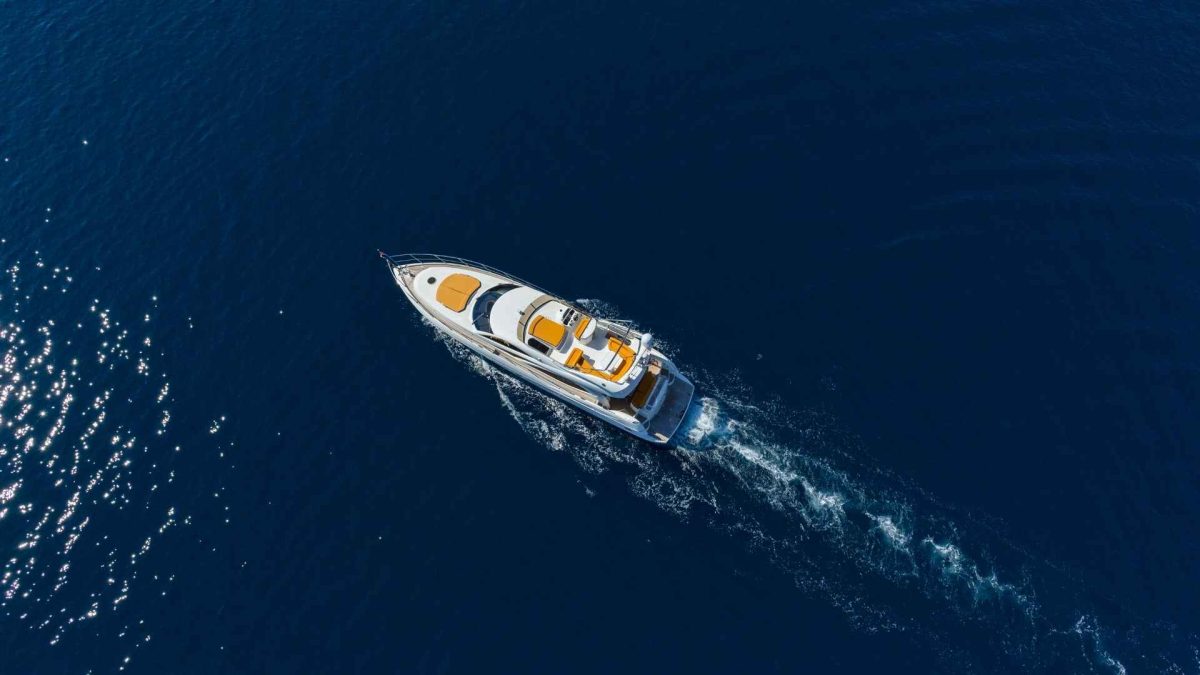If you're a yacht owner, have you ever stopped to consider the toll hard water takes on your vessel? The relentless surge of mineral-rich water can shave years off your yacht's lifespan, attacking everything from the plumbing and surfaces to your precious appliances. But fear not, there's an elegant solution that can not only mitigate these damaging effects but also add a touch of refinement and quality to your onboard water supply.
In this valuable discourse, we unveil the wonder of water softener systems for yachts. Get ready to explore the hidden advantages, understand the science behind it, choose the best fit for your luxurious vessel, and learn how to maintain this vital investment. After all, owning a yacht isn't just about cruising the ocean in style but maintaining that style at its finest.
Benefits of Using a Water Softener System on Yachts
A yacht isn't just a vessel, it's your retreat from the world, and as such, requires utmost care. One common issue yacht owners face is hard water, which isn't just unpleasant for human use but also detrimental to the yacht's plumbing system. This spotlight the necessity of a water softener system aboard.
Utilizing a water softener system on yachts can prevent mineral buildup on surfaces, that would otherwise take a toll on the yacht's aesthetics and functionality. The system also protects plumbing by curtailing limescale deposits, thereby improving the lifespan of appliances like dishwashers and water heaters.
Adding to these advantages, water softener systems enhance water quality, making it safer for drinking and personal grooming. Consequently, it also trims down maintenance and descaling costs, proving to be cost-effective in the long run. In the following sections, we'll delve into how these systems work and how you can maintain them effectively.
How a Water Softener System Works
Water softener systems are designed to combat hard water issues by removing excess minerals that cause water hardness, primarily calcium and magnesium. To understand how these systems work, it's essential to know their major components: the mineral tank, the control valve, and the brine tank.
The operative heart of a water softening system is the mineral tank, filled with small resin beads that carry a negative charge. Since calcium and magnesium ions carry a positive charge, they are attracted to the resin beads during the ion exchange process, displacing sodium ions.
The control valve regulates water flow into and out of the mineral tank, ensuring efficient operation. It automatically detects when the resin beads are saturated with hard minerals and initiates the regeneration process.
The Regeneration Process
The regeneration process involves the brine tank, which works in tandem with the control valve. It's filled with a highly concentrated sodium or potassium solution. The control valve diverts water to the brine tank, where the brine solution flows into the mineral tank. The higher concentration of sodium or potassium ions in the brine displaces the hard minerals from the resin beads, effectively 'regenerating' the system.
Regular maintenance, as discussed in the final section of this article, is crucial to ensure the efficient operation of a water softener system and keep your yacht's water supply soft and safe.
Choosing the Right Water Softener System for Your Yacht
Putting into account the unique needs of yacht owners, selecting the right water softener system for your yacht may appear as a complex task. Several factors must be considered, such as the yacht's size, water usage requirements, and the available space for installation. Ultimately, the choice may come down to two main types of systems: salt-based or salt-free.
Salt-based systems are traditionally robust, efficiently removing hardness minerals through the ion exchange process, as discussed earlier. However, they may require more space and maintenance efforts. On the other hand, salt-free systems are compact, easier to maintain, but might not be so thorough in softening extremely hard water.
It's crucial to partner with a reliable service provider, like ——-, who can accurately assess water hardness levels on your yacht, and guide you towards the most fitting solution. Remember, a well-chosen water softener system will ensure a more comfortable yachting experience, and also drastically reduce troublesome maintenance costs.
Maintenance Tips for Water Softener Systems on Yachts
Proper care and regular upkeep of a water softener system are necessary for extending its lifespan and efficiency. Ensuring to routinely check the salt levels in the brine tank and clearing any blockages or bridges can help improve the softening process. A routine inspection of the control valve and performing professional servicing will aid in detecting and rectifying any malfunction early on.
A mindful water usage, lowering unnecessary wastage, not only contributes to overall water conservation but also reduces the strain on the water softener system. Remember, with proper maintenance, your yacht can have consistent high-quality water, resulting in significant long-term cost savings.

